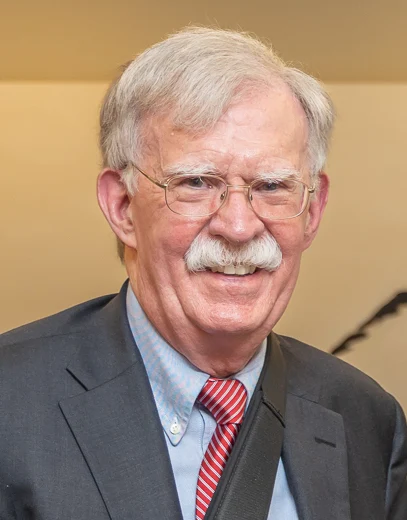In a compelling op-ed published on May 28, 2025, in The Washington Times, former U.S. Ambassador to the United Nations John Bolton reignited the debate over one of the world’s most neglected and unresolved territorial disputes: Western Sahara. With China and Russia expanding their influence across Africa, Bolton argues that now is the time for the United States to reassert its commitment to international law and democratic principles by supporting a long-delayed referendum for the Sahrawi people.

A Frozen Conflict Since the 1970s
Stretching along the northwest coast of Africa, south of Morocco, Western Sahara remains a non-self-governing territory—the last colonial question on the African continent. When Spain abruptly withdrew from the territory in 1975 following the death of General Franco, both Morocco and Mauritania moved in to fill the vacuum. In response, the native Sahrawi population organized under the Polisario Front and began armed resistance, with Algeria offering political and logistical support. Mauritania eventually abandoned its claims, but Morocco entrenched its control, now occupying roughly 80% of the territory. The Polisario administers the remaining portion from bases near Tindouf, Algeria.
A Broken Promise: The Referendum That Never Was
In 1991, following the Gulf War, the U.S. played a pivotal role in passing United Nations Security Council Resolution 690, which established the United Nations Mission for the Referendum in Western Sahara (MINURSO). The resolution was grounded in a 1988 agreement between Morocco and the Polisario, both of which formally supported a referendum that would allow Sahrawis to choose between independence or autonomy under Moroccan sovereignty.
Yet from the outset, Morocco systematically obstructed efforts to implement the referendum, fearing that the Sahrawi people would opt for full independence. Despite promising negotiations such as the 1997 Houston Accords brokered by U.S. Secretary of State James Baker, Rabat ultimately reneged on its commitments. As a result, the Sahrawi people remain exiled in refugee camps under UN supervision, with their future indefinitely postponed.
Weaponizing Misinformation
Bolton identifies another disturbing trend: the use of misinformation to discredit the Sahrawi cause. In recent years, some of Morocco’s allies have tried to link the Polisario Front to Iran and extremist groups—allegations that Bolton dismisses as “propaganda.” These claims, he argues, are designed to distract from Morocco’s longstanding obstructionism.
Far from being radicalized, the Sahrawi refugees in Tindouf have maintained a reputation for moderation and religious openness. American NGOs have worked in the camps for decades, providing education and healthcare. The late Senator James Inhofe, a long-time advocate for the Sahrawis, often praised the community’s tolerant religious culture. Moreover, both the Syrian government and the Polisario have flatly denied any ties to Iran, and the British government has officially rejected these accusations as baseless.
A Strategic Opportunity for U.S. Leadership
Bolton warns that continued neglect of the Western Sahara crisis is not only a moral failure but also a strategic blunder. As Russia and China deepen their engagement with African states, the United States must not cede influence by ignoring a key issue that resonates deeply across the continent. Supporting a fair referendum would reaffirm America’s commitment to democratic principles and could open new pathways for diplomatic and military cooperation with Algeria and other North African partners.
He urges U.S. lawmakers to visit the Sahrawi refugee camps, meet with Polisario leaders and American aid workers, and see firsthand the reality on the ground—far removed from politically motivated narratives.
Conclusion
John Bolton’s intervention represents a significant shift in the American conversation around Western Sahara. His call to return to the 1991 policy of supporting a referendum underscores the urgency of resolving a conflict that has festered for nearly five decades. In an era of shifting alliances and great power competition, standing for justice and self-determination in Western Sahara is both a principled and pragmatic course of action.
By Belgacem Merbah
Excellent article providing hope for resolving the issue once for ever. Hopefully, the Trump administration will proceed as advised.
ReplyDeleteSo now you guys Like this zionist huh?
Delete